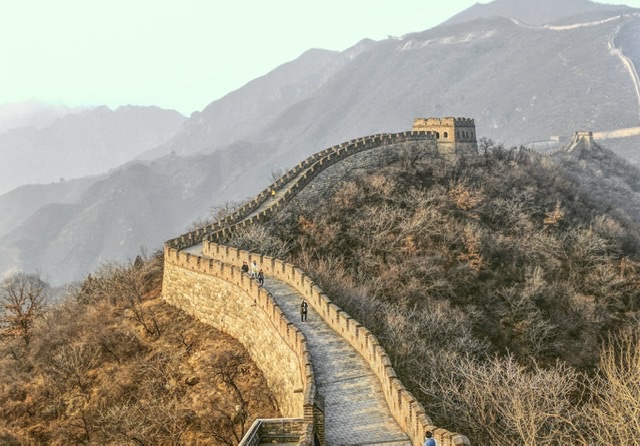Could AUKUS open a Chinese window to international leadership?
October 5, 2021
While there may still be quite a bit of debate about the strategic merits of AUKUS, theres one thing most people agree about: China is not very happy.
Indeed, its even acceptable to talk about an entire nation in this way given how easy it is to upset the feelings of the Chinese people at times. True, the principal source for this latter claim is the hyper nationalist Global Times, but its uncontroversial to say that the birth of the nuclear-powered Anglosphere hasnt gone down well in the Peoples Republic.
To be fair, its not hard to see why. Chinas leaders were already rather paranoid about “American hegemonism”, and generally regard Australia as little more than a “faithful lapdog”, incapable of thinking for itself in strategic or foreign policy terms. “Global Britains” recent decision to send a gunboat to the Far East has only served to inflame a sense of injustice about international relations past and present, and highlight the general failure of the world to accord China the respect its people plainly think it merits.
But as the old clich has it, respect is something that has to be earned.
Somewhat counter-intuitively, its possible that the PRC could actually turn the creation of the AUKUS alliance into the proverbial window of opportunity. After all, the last thing the world needs at the moment is a throwback to the Cold War that is designed to contain and isolate China from a region in which it has become the most consequential part.
If the world is to have any hope of addressing climate change, or any of the panoply of collective action problems we currently face, China will have to be included not excluded. Whether effective international leadership is actually possible in the most important century of human existence is a moot point, but its fairly certain it wont rest exclusively on the shoulders of three Western white men, or even the slightly more inclusive Quad grouping, for that matter.
Even if we accept that theres an absence of international leadership now which many here and in the US wont of course its not obvious that China might provide it. On the contrary, the conventional wisdom is that the PRC is a threat to the rules based international order, even if its not entirely clear what that is or who actually upholds it.
But Chinese leaders see themselves as representing the interests of the “Global South”, and feel that their actions to improve the welfare of their fellow developing countries have not been given the recognition they deserve. For all the criticism that the Belt and Road Initiative has attracted in the West, it remains the case that infrastructure investment is still essential in much of the south, and a railway is a valuable asset, no matter who funds and builds it.
The PRC has unambiguously demonstrated that its very good at rapidly rolling out infrastructure; possibly, too good, in fact. Clearly, there are limits to how much housing the domestic market can absorb. By contrast, much of the rest of the world is crying out for precisely the sort of infrastructure that only China seems capable of delivering at this historical juncture.
Its worth remembering that in the heyday of American primacy, it helped to rebuild the war ravaged economies of Western Europe. Why cant the PRC do something similar now in somewhere like Syria, for example?
Not only would an offer to rapidly rebuild Syrias shattered cities be overwhelmingly popular with the locals, no doubt, but it might demonstrate that China is capable of playing a constructive and much-need leadership role in helping to broker peace and reconstruction in the benighted Middle East. It would also offer a way of mopping up surplus domestic building capacity, too, of course.
Unlikely? Perhaps so, but its worth remembering that the US-sponsored Peace Corps was a not unimportant part of American “soft power”; there is no reason why Chinese workers wouldnt be welcomed around the world if they were doing something unambiguously useful. The simple recognition that there is much work to be done in countries that have found themselves at the sharp end of global, regional and domestic power struggles might also help to transform the relations between the North and South.
If China were to take such an initiative especially somewhere like Afghanistan, for example it would not only provide a striking contrast with the USs recent international role, but it would also demonstrate the PRCs capacity to provide precisely the sort of constructive leadership we all need at the moment.
If Chinas leaders were really ambitious they could offer to negotiate an arms reduction treaty with the US and use the money saved to pay for much needed reconstruction and development around the world.
It would be both hard to criticise and ignore Chinese efforts to provide international leadership in such circumstances. At the very least, it might put moral pressure on the US and its allies to change the way they act, too. Now that would be an example of the sort of win-win diplomacy that is often invoked but seldom seen.

